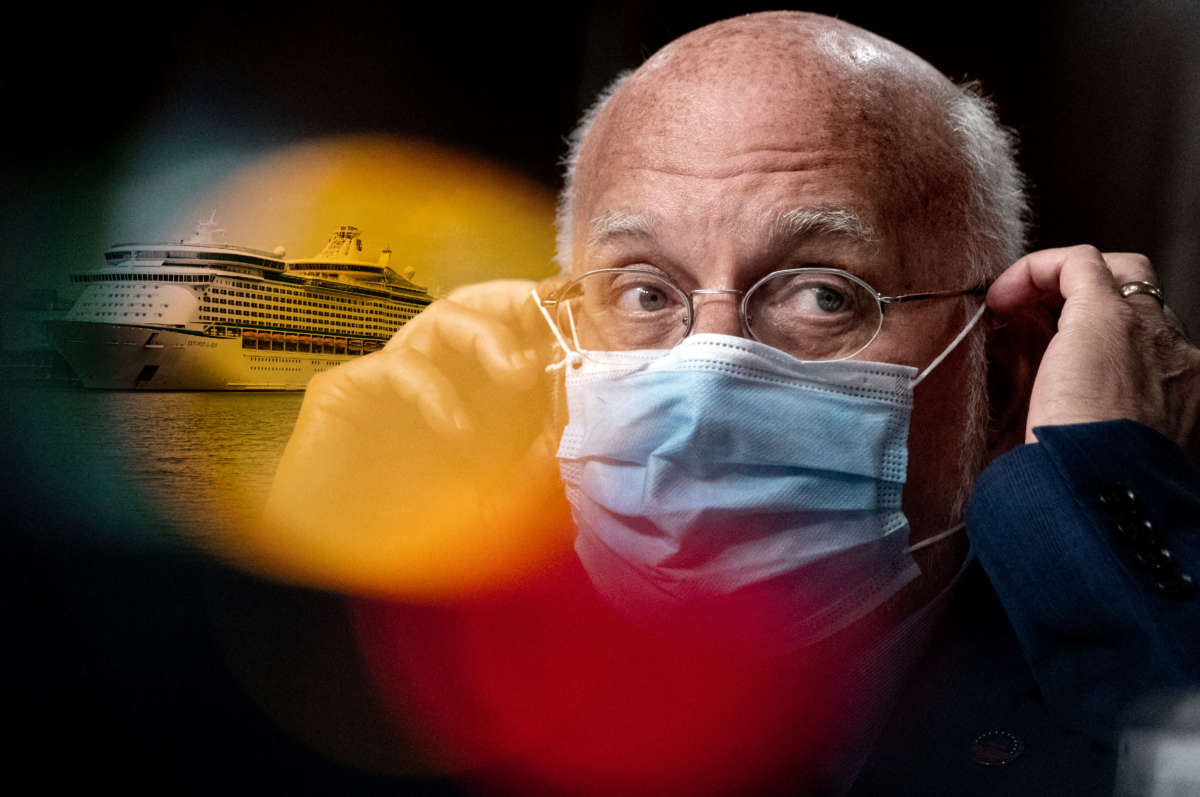Robert Redfield, the director of the Centers for Disease Control and Prevention (CDC), was overruled by other members of President Trump’s coronavirus task force over whether a “no-sail ban” on cruise ships should continue for another four months, apparently thwarting a public health expert’s understanding and concern about COVID-19 in favor of appeasing the cruise ship industry.
The current no-sail ban was set to expire on Wednesday, although an industry-imposed ban may continue through October 31. The decision by the task force appears to be the latest example of the Trump administration overruling scientific experts to push for a policy that seeks a return to “normalcy” despite there being no signs of the pandemic slowing down.
Some public health officials believe that the lifting of the cruise ban may have been politically motivated, Axios reported, in order to garner support from the cruise ship industry, particularly in Florida, a contentious swing state in this year’s presidential race. The White House has denied that politics played a role in its decision.
An official within the White House said that industry heads are set to meet soon with the administration in order to hammer out details on how to return to business, to “describe their transformation and dozens of ways that they will mitigate risk and ensure public health.” If the administration is not satisfied with that plan, that official explained, the ban will continue on a month-to-month basis.
But it’s highly unlikely the Trump administration will thwart the wishes of the cruise ship executives. Early on in the coronavirus pandemic, when it was clear that cruise ships were hotspots for the spread of infection, industry executives lobbied hard to push against the possibility of a ban, even meeting at the beginning of March with Vice President Mike Pence in Florida to dissuade him from the need for such restrictions. The CDC eventually imposed a no-sail ban on March 14.
Cruise ships were deemed largely responsible for the spread of COVID-19 during the early weeks of the pandemic. One study from the CDC found that, between February 3 and March 13, 17 percent of all coronavirus cases known in the U.S. involved individuals who had recently been on a cruise.
The current ban set to expire on Wednesday was itself an extension that was implemented last month by the CDC. A report released by the CDC simultaneously noted that 38,000 hours had been dedicated to dealing with the 99 outbreaks of COVID-19 on 123 cruise liners in U.S. waters.
The report stated in no uncertain terms that there would be “substantial unnecessary risk” to health care workers, port personnel and federal employees if the ban was lifted — not to mention a great deal of risk to the health of passengers and crew members working on the ships.
The White House’s decision to go against Redfield’s recommendations on continuing the cruise ship ban through February next year comes days after the CDC director was reported to have been overheard disparaging Scott Atlas, Trump’s most favored and controversial coronavirus adviser. Atlas, a neuroradiologist and frequent guest on Fox News holds dangerous beliefs about how to best combat the disease and is known for pushing theories about herd immunity and disputing the need for the use of masks in public spaces despite his lack of expertise in epidemiology.
“Everything he says is false,” Redfield reportedly said on the phone to an unknown listener during a flight from Atlanta to Washington, D.C.
Our most important fundraising appeal of the year
December is the most critical time of year for Truthout, because our nonprofit news is funded almost entirely by individual donations from readers like you. So before you navigate away, we ask that you take just a second to support Truthout with a tax-deductible donation.
This year is a little different. We are up against a far-reaching, wide-scale attack on press freedom coming from the Trump administration. 2025 was a year of frightening censorship, news industry corporate consolidation, and worsening financial conditions for progressive nonprofits across the board.
We can only resist Trump’s agenda by cultivating a strong base of support. The right-wing mediasphere is funded comfortably by billionaire owners and venture capitalist philanthropists. At Truthout, we have you.
We’ve set an ambitious target for our year-end campaign — a goal of $240,000 to keep up our fight against authoritarianism in 2026. Please take a meaningful action in this fight: make a one-time or monthly donation to Truthout before December 31. If you have the means, please dig deep.
